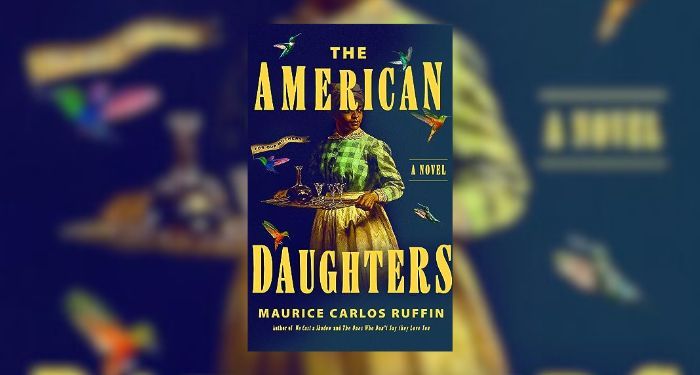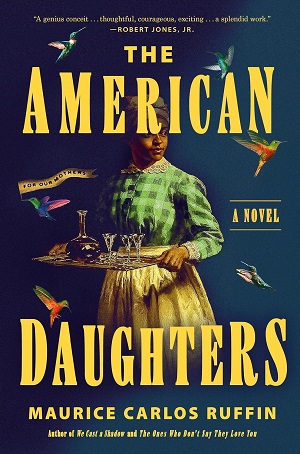
Spies Against the Confederacy in This New Historical Fiction
Today’s pick is a newer release that is mostly historical fiction about the years of slavery just before the US Civil War. I use “mostly” because there are bits and pieces in this book, but the story revolves around the central idea that Black women have always saved everyone and will even do so in the future. Specifically, there may be a through-line of a secret sisterhood that does just that.

The American Daughters by Maurice Carlos Ruffin
This is the story of Ady. Ady and her mother, Sanite, were bought at a slave auction by a man named du Marche. He didn’t have them work at his slave labor camp, known as a plantation, and instead had them serve him at his townhouse in New Orleans. Very early in the story, du Marche begins to sexually assault Sanite. Sanite does everything she can to protect Ady from both this and the other myriad horrors of being enslaved. Sometimes, du Marche leased mother and daughter out to work for his neighbors.
Not all the Black people in New Orleans were enslaved. Some were free and well-off business owners themselves. Ady was in awe of them and loved to walk around the parts of the city where she was allowed. It had always been just her and her mother, and her mother was her whole world. The story follows Ady and Sanite, their attempted escape, and eventually, just Ady. Du Marche treats Ady in the same disgusting manner he treated Sanite, and then at one point, he brings in a tutor and starts demanding that Ady learns to read and write. He also starts buying her nice dresses and asks her to refer to him as father. There are many parts of this book that are really dark.
One day, Ady is on a walk in town while du Marche is away at his slave labor camp, and she stops to rest. She meets an enchanting free Black woman who owns a tavern and invites Ady to come in for a refreshment. Ady does so without question, even though she knows that if du Marche found out, the punishment would be swift and harsh. Making this woman’s acquaintance opens many new, tempting doors for Ady, and the story gets increasingly more interesting and daring. Slavery is always hard to read about, and this book is no different, but there are also elements of joy and hope in Ady’s story.
Want reading recs in your inbox? Sign up for our Read This Book newsletter!
- How To Pick Which Historical Fiction Book To Read Next
- There’s Never Been a Better Time to Pick Up a Book About Media Literacy
- New Maureen Johnson Mystery, British Serial Killer Procedural, 500+ Page Mysteries & More!
- Grammar Nerds, This Book Is for You
- Black Surrealism, Freedom, Spirituality, and Survival
- A Dark, Twisted, Substantially Satisfying Fairytale
- Looking to Get Into Cooking? This Is The Book For You








